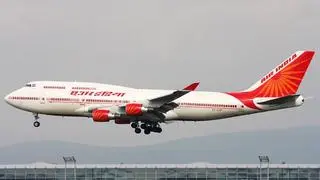It would seem strange that pilots would purposefully dump fuel from their aircraft at a time when fuel prices have skyrocketed. What’s more bizarre is that they do it in the air while flying.
Tossing fuel into the air is a safe procedure for a good reason. Additionally, it is not as wasteful as it seems. Fuel disposal can occasionally be less expensive than not doing so. However, it isn’t something that pilots frequently do.
Certain planes are built to be substantially lighter while landing than when taking off, often by more than 2,00,000 pounds (90,909.1 kg). This is because landing can place additional strain on a jet. When a plane lands heavily, it can hit the ground too hard and damage itself. During an emergency, a jet may be forced to land earlier than anticipated. This is where fuel dumping comes into play.
Dumping Options
A pilot has several choices for dumping fuel. He can fly the aircraft around to burn fuel. In this case, the pilot can lower the gear or flaps to aid in the burning of fuel (or “dirty up the aeroplane”) [source: Getline]. During a medical emergency, this alternative is less than ideal.
Ejecting fuel is another option. This can be as simple as flipping a switch in the cockpit. The system consists of pumps and valves that allow gasoline to be jettisoned from the nozzles on the aircraft’s wings. When deployed, such a device can eject thousands of pounds of fuel per minute and resembles a contrail. But narrow-body planes such as the Airbus A320 or the Boeing 757 are not designed with gasoline dumping capabilities. However, larger, wide-body planes with extra tanks, such as the Boeing 777 and 747 can spill gasoline.
Most of the dumped fuel starts evaporating before it reaches the earth. This is more common on hotter days and when an aircraft is flying high in the sky, ideally above 5,000 feet (1,524 meters).
Source: howstuffworks.com







Comments
Comments have to be in English, and in full sentences. They cannot be abusive or personal. Please abide by our community guidelines for posting your comments.
We have migrated to a new commenting platform. If you are already a registered user of TheHindu Businessline and logged in, you may continue to engage with our articles. If you do not have an account please register and login to post comments. Users can access their older comments by logging into their accounts on Vuukle.